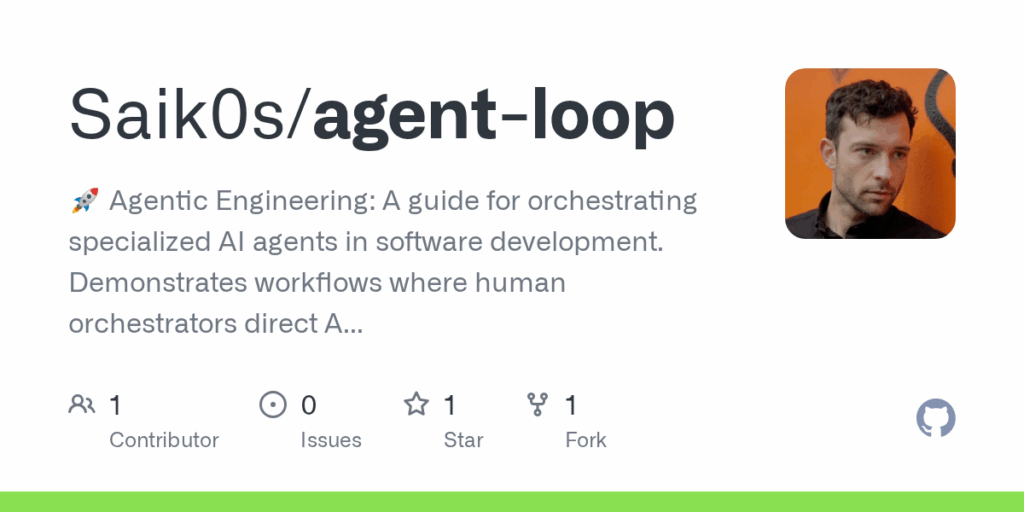agent loop
Basic Information
Agent Loop is a framework for AI-driven software development that coordinates a team of specialist AI agents via an orchestrator to handle tasks from high-level planning and architecture to coding, testing, and deployment. The repository documents core concepts, roles, and workflows for using the system through simple textual commands. It defines an orchestrator that delegates work and multiple specialist agents such as Architect, Builder, Tester, Researcher, Reviewer, Debugger, Planner, Scope Analyst, Security Analyst, and Code. The README explains command-driven interactions like /plan, /build, /test and shows an example end-to-end workflow. It also captures core agent principles in a CLAUDE.md reference, emphasizing delegation, context awareness, test-driven development, and a structured thinking process before execution. The project is intended to guide users in orchestrating agent-based software engineering workflows rather than providing a single monolithic AI.








